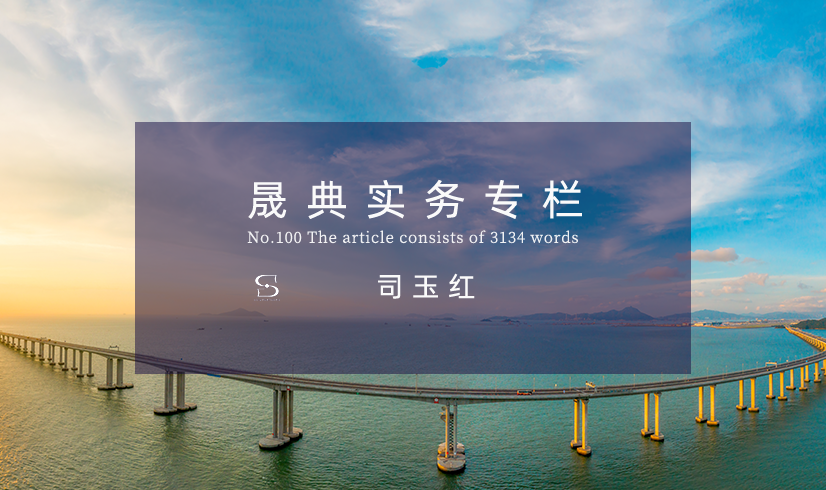Sheng Code Practice, Si Yuhong: Workers in the performance of their duties caused by the employer's property losses should bear civil liability analysis-to a similar practical case as a reference to the discussion.
![]() Loading...
Loading...
![]() 2024.12.17
2024.12.17
Full 3134 word, reading time is about visibility: outline "style 0px: visible;">8 min.
Civil Code of the People's Republic of China, art. 1,191 section section provides: " If the employee of the employer causes damage to others due to the performance of work tasks, the employer shall bear the tort liability. After the employer assumes tort liability, it may recover compensation from the staff member who has intentional or gross negligence. " except as my country Labor Code Special laws such as the Labor Contract Law do this No Yes Yes . and due to different legal application at labor arbitration stage , the number of relevant cases leading to the final judgment in judicial practice that there is a fault in the performance of the duties of the laborer, resulting in the loss of the employer and the final compensation for the property loss of the employer is very small .
In this article, the author plans to cause property losses to the employer in the process of performing his duties through a personally handled worker, for this purpose, the employer claims compensation to the workers and ultimately obtains the court support of the case to analyze and discuss.
On July 26, 2019, Xiong Mou, a driver of a company in Shenzhen, took state-controlled psychotropic drugs and failed to drive safely on Binhe Avenue, Futian District, Shenzhen City, yang, an employee of Tongcheng company, was injured. A company in Shenzhen paid a total of 524515.88 yuan for medical expenses, operation expenses and nursing expenses. Later, Yang applied to the Human Resources and Social Security Bureau of Longgang District, Shenzhen for the identification of work-related injuries. After the bureau verified that Yang's injuries in this accident were finally identified as work-related injuries and were identified as Grade 7 disability. After the result of the work-related injury determination came out, Yang applied for labor arbitration to the Labor and Personnel Dispute Arbitration Committee of Longgang District, Shenzhen. Because a company in Shenzhen did not purchase social security for Yang, a company in Shenzhen was finally ruled by the Labor Arbitration Commission to pay Yang a one-time disability subsidy, a one-time disability employment subsidy and other items, totaling 275000 yuan, plus the salary and nursing expenses paid to Yang during the shutdown period. The accident caused a company in Shenzhen to lose a total of 890518 yuan in direct economic losses. Because Xiong took controlled drugs in the process of performing his duties and caused a traffic accident by not operating safely in accordance with the regulations, it was a major fault that caused economic losses to the employer. The author acted as an agent and filed an arbitration and lawsuit, requesting that Xiong be liable for compensation.
in the labor arbitration stage, although the employer has fully proved and explained Xiong mou's serious fault and communicated with the labor arbitration Committee in detail. However, the Labor Arbitration Commission still uses my country's "Labor Law", "Labor Contract Law", "Labor Dispute Mediation and Arbitration Law" and other laws and regulations to not stipulate this and believes that a company in Shenzhen has not paid Yang work-related injury insurance, so it has paid to Yang. Work-related injury medical expenses, one-time disability subsidies, one-time work-related injury medical subsidies, work stoppage wages, nursing fees, etc. are the legal responsibilities that a company in Shenzhen should perform in accordance with the law and should bear the employment risks, without considering that the traffic accident was caused by Xiong's obvious and direct gross negligence, the Labor Arbitration Commission only confirmed that the employer and Xiong had a labor contract relationship from September 28, 2016 to January 31, 2020, and finally made an arbitration result that rejected a Shenzhen company's claim to compensate Xiong for economic losses.
a company in Shenzhen filed a lawsuit with a district people's court in Shenzhen against the arbitration result. the district people's court held that Xiong mou caused losses to the employer while performing his duties, there is still no clear stipulation on whether employees are liable for compensation according to the current Labor Law and Labor contract Law, and a company in Shenzhen has failed to provide evidence that both parties have made an agreement in the labor contract or stipulated in the rules and regulations that compensation for economic losses caused by employees' gross negligence, so a company in Shenzhen is liable for compensation due to its own inadequate management, and the final judgment rejected all claims of a company in Shenzhen.
A Shenzhen company refused to accept the results of the first instance and continued to initiate the second instance procedure. After hearing the case, the court of second instance held that it was recorded in the traffic accident liability confirmation that Xiong was responsible for the traffic accident due to taking controlled drugs and driving not in accordance with safety regulations, and therefore determined that Xiong was fully responsible for the traffic accident. However, the specific substance of the controlled drug was not recorded in detail in the accident confirmation, and the judge believed that the important facts of the case that could affect the outcome of the case had not been clarified, the above facts involve whether there is a major fault in Xiong's performance of his duties and whether he should bear the liability for compensation, which may affect the substantive handling of the case, so he is sent back for retrial on the grounds of unclear facts.
the court of first instance obtained all the case file materials from the traffic police detachment and found out that Xiong mou admitted in the record that he had fatigue, dozing and other improper circumstances that could affect safe driving, and after the accident, the judicial appraisal report issued by the appraisal agency commissioned by the traffic police detachment confirmed that Xiong's blood contained amphetamine and methamphetamine (ie methamphetamine) at the time of the traffic accident. That is to confirm that the controlled drugs taken by Xiong are actually drugs prohibited by law, and Xiong's illegal act of taking drugs is obviously a serious negligence or major fault in performing his duties.
At the first review stage, regarding whether Xiong took drugs and drove fatigue during the performance of his duties and caused a traffic accident and assumed full responsibility for the traffic accident is a gross negligence, whether he should ultimately bear the liability for compensation, and what proportion of the liability for compensation has become the focus of the case. Xiong used his drug use as a play in the process of accidental aspiration subjectively and no intentional defense of drug use. As an agent of a company in Shenzhen, the author makes an argument on the grounds that Xiong's experience of drug crimes was not accidental aspiration, his self-admission of fatigue driving and methamphetamine abuse were not only gross negligence but also suspected of illegal crimes, Xiong's failure to bear the liability for compensation as a fault party was obviously contrary to basic fairness and justice, and the judgment would bring negative social effects, in the end, the court of first instance found that Xiong had obvious intentional or gross negligence fault for the occurrence of the traffic accident. In another case, the work-related injury suffered by Yang could be attributed to Xiong, and the tort legal relationship between Xiong and Yang and the work-related injury insurance relationship between Yang and Chuangnatural were independent of each other. After a company in Shenzhen assumed temporary, alternative and non-final compensation liability, from the point of view of filling losses and compensating functions, Xiong has the right to recover compensation from employees who have made major mistakes in the process of performing their duties. Finally, based on Xiong's income status, the degree of fault of both parties and the principle of fairness, Xiong is sentenced to bear 50% of the compensation liability for medical expenses, that is, Xiong should compensate a company in Shenzhen for the total loss of medical expenses of 275982.94 yuan. After the retrial of the first-instance judgment, neither party filed an appeal. At present, the above-mentioned judgment has become legally effective.
Based on the handling of the above cases, the author thinks:
First, from the legal point of view, china's current "Labor Dispute Mediation and Arbitration Law", "Labor Contract Law" and other provisions on whether the employer should bear the liability for damages caused by intentional or gross negligence in the process of performing their duties, and there is also a lack of clear standards for the determination of gross negligence. Therefore, there is no legal basis for the award of compensation liability for workers in the labor arbitration stage, therefore, in the labor arbitration stage, the arbitration committee may tend to reject the employer's arbitration application for compensation for losses. It can be seen that the scope of the current laws and regulations in the field of labor law and the liability subject of the laws and regulations in the field of infringement are not consistent, and there are even some conflicts and inconsistencies. Therefore, it is particularly necessary to amend and improve the laws and regulations in the field of labor, and it can also make workers more prudent and responsible, prevent the occurrence of wanton negligence damage to the company's property.
Second, from the perspective of enterprise compliance, the court in the first instance of the above-mentioned case stipulated that the employer failed to prove that both parties had made an agreement in the labor contract or in the rules and regulations to compensate for the economic losses caused by the employee's gross negligence, therefore, the liability for compensation is caused by the inadequate management of a company in Shenzhen, so the employer's request for arbitration is rejected, which shows that the employer itself has serious omissions and negligence in the process of signing the contract and formulating the system. In this case, it is precisely because the employer lost the labor contract of the laborer, lacked the rules and management system, and also lacked the safety training, supervision and education measures for the driver and other employees, which led to the employer's failure to provide evidence. The court of first instance believed that the improper management should bear the adverse consequences. The long-term and healthy development of an enterprise is inseparable from law-abiding and compliant operations, and enough time and energy should be invested in prevention before doing things, and conflicts and risks should be resolved in the bud, which is also conducive to the handling of disputes afterwards.
Third, from the perspective of fault identification standards, there is no doubt that Xiong caused a traffic accident due to drug use in the above-mentioned cases, thus determining that the laborer had a major fault. However, even if there is no plot of taking drugs, the author believes that if the worker, as a driver, has a traffic accident and bears full responsibility, it has reached a serious fault in the general sense. As a professional driver, the worker should strictly abide by the traffic rules and driving norms. If a traffic accident is caused by his illegal driving, he should bear the corresponding legal responsibility.
it is the basic obligation of every worker to abide by labor discipline and professional ethics. compliance and law-abiding operation is also the key to the sustainable and healthy development of enterprises. both enterprises and workers should continuously enhance their consciousness of abiding by the law in order to standardize the compliance operation of enterprises, the purpose of guiding workers to perform their duties diligently and in good faith. In addition, employers must sign a complete written labor contract to determine the rights and obligations of both parties, pay social insurance for employees, carry out daily safety management training, and democratically formulate and publicly announce company rules and regulations can prevent and resolve risks encountered in business operations. Reduce unnecessary economic losses.

Lawyer Si Yuhong
[Brief Introduction to Practice] Shengdian Law Firm is a full-time lawyer. He is currently the deputy director of the Labor and Personnel Law Committee of Shengdian Law Firm and a specially invited mediator of Shenzhen Futian District People's Court. Since 2017, he has acted as an agent for hundreds of economic contract disputes, labor disputes, criminal and construction project contract disputes. He has rich experience in civil and commercial legal business practice and litigation practice, and has provided professional, high-quality and efficient legal services for many consulting units all the year round.
[Practice Areas] Dispute Resolution, Real Estate and Construction Engineering, Criminal, Perennial Counsel, Labor and Employment.
Tel: 13923755605
Email: siyuhong@sdlaw.cn

